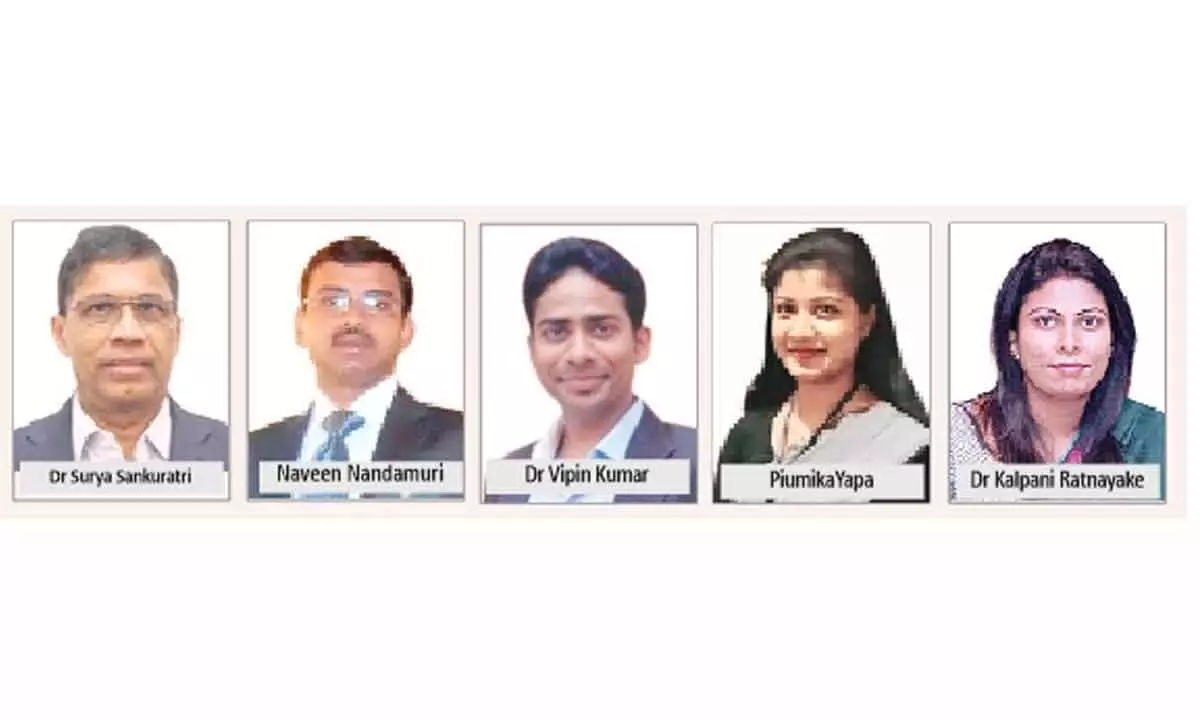‘Institutions, startups drive innovative drug development’
image for illustrative purpose

Hyderabad: Drug Discovery and Development workshop is being organised by FABA (Federation of Asian Biotech Associations) Academy in collaboration with US-based non-profit organisation Science Gurus, and the University of Hyderabad from March 13 to April 2. This workshop is also supported by World Trade Center Shamshabad & Visakhapatnam.
The event featured brilliant minds and cutting-edge ideas, making it a resounding success. Industry experts delivered captivating lectures, paving the way for groundbreaking advancements in the field.
On the 14th day of the workshop, Dr Surya Sankuratri, who is a Co-founder of Arona Global Sciences and a board member of Science Gurus, delivered the first lecture on “Collaborating, Licensing, M&A, and Divesting in the innovative pharma and biotech industry”. During his presentation, he highlighted the importance of biotech as a source of innovative medicines and pharma's increasing dependence on external innovation. He also discussed the scenario of academia, contract research, clinical research, and manufacturing organisations in driving innovation in the Industry.
He emphasised the importance of licensing, M&A, and divesting as key strategies for companies looking to stay competitive in the fast-paced and rapidly evolving pharmaceutical and biotech landscape. He provided insights into current and future drug innovation trends and the critical role that collaboration and partnership will play in driving innovation and success in the industry.
Dr Surya said that “globally academic institutions and startups are the major drivers of innovative drugs development”. Participants were impressed by his deep knowledge and expertise in the field, as well as his ability to provide actionable insights that can help organisations stay ahead of the curve in this dynamic and challenging industry.
During the second lecture, Naveen Nandamuri, Senior Clinical Trial Manager, ICON Plc discussed the importance of regulatory guidelines such as the International Council for Harmonization of Technical Requirements for Pharmaceuticals for Human Use - Good Clinical Practice (ICH-GCP) and the NDCT Rules 2019. These guidelines provide a framework for conducting clinical trials that ensure patient safety and the reliability of trial results.
He highlighted the growing trend towards decentralised clinical trials (DCTs). He explained that DCTs are becoming increasingly popular due to their ability to reduce costs, increase patient engagement, and accelerate the drug development process. The presentation provided valuable insights for those working in the clinical research industry, as well as investors and other stakeholders interested in the field. By introducing attendees to the various aspects of clinical operations, Nandamuri explained complex concepts in a clear and concise manner, and shared his insights into the latest trends and developments in the industry.
Vipin Kumar, Application Specialist, Cytiva, delivered the third lecture on the Biacore system and its use in the discovery and early stage development of bio therapeutic antibodies. During his presentation, Dr. Kumar discussed the importance of characterizing and selecting antibodies for precision diagnostics, and how the Biacore system can assist in this process.
He provided a brief history of the Biacore system, which is a widely used platform for measuring biomolecular interactions. He explained how the system has evolved over time to be able to handle a wider range of assay and sample types, making it an essential tool for researchers in the field of biotherapeutics.
Dr Kumar also provided an overview of the principle of plasmon resonance, which is the underlying technology behind the Biacore system. He explained how the system works by measuring changes in the refractive index of a sensor surface as analytes bind to it, allowing researchers to study the interactions between molecules in real-time. Overall, Dr. Kumar's presentation provided valuable insights into the Biacore system and its capabilities in the field of biotherapeutic antibody development. By introducing attendees to the system's history and principle of operation, he helped to demystify this powerful technology and a better understanding of the Biacore system and its potential applications in biotherapeutics research.
The day concluded with remarkable presentations by PiumikaYapa, Faculty of Applied Sciences, University of Sri Jayewardenepura, and Dr Kalpani Ratnayake, Faculty of Health Sciences, CINEC Campusfrom Sri Lanka presented on the topics of Breast Cancer and Inflammatory Diseases, respectively.
Overall, the workshop demonstrated that collaboration between academia and industry can lead to groundbreaking advancements in drug discovery and development, and serves as a testament to the power of knowledge sharing and innovation.

